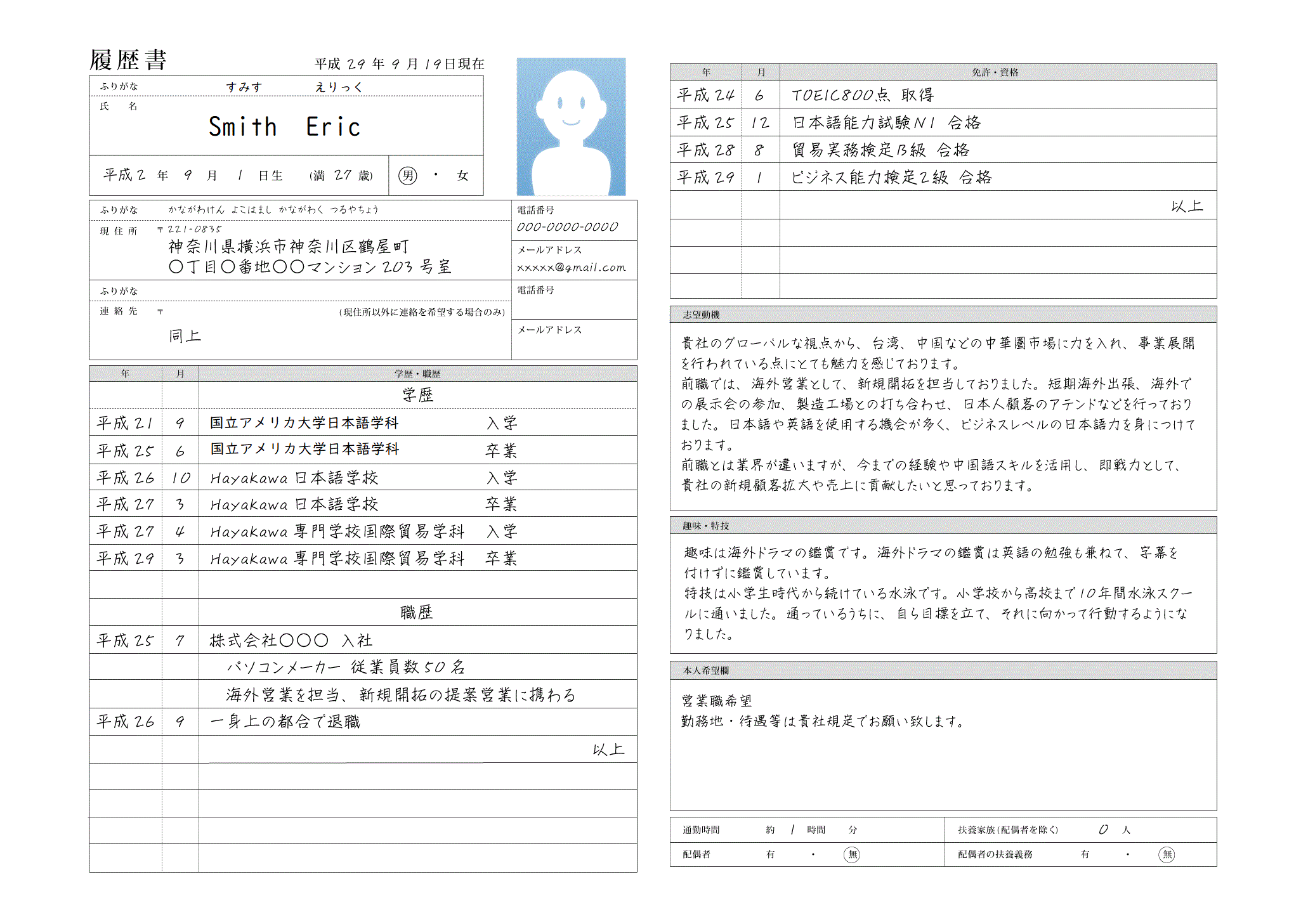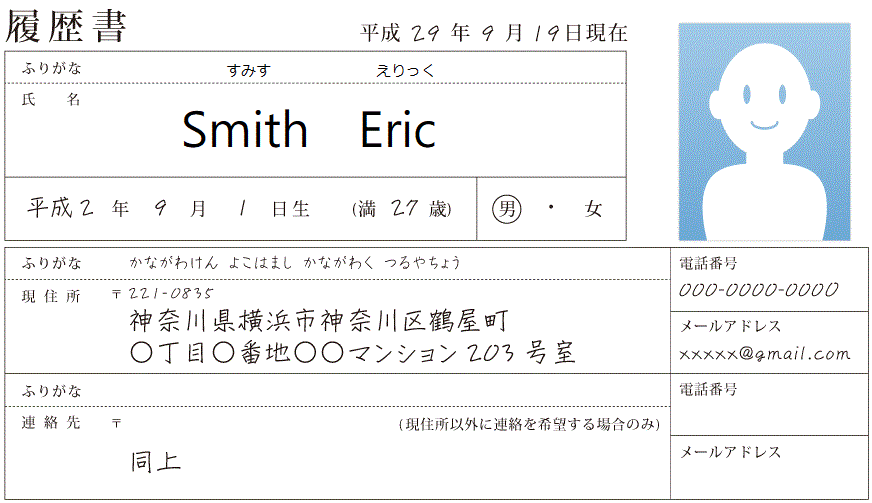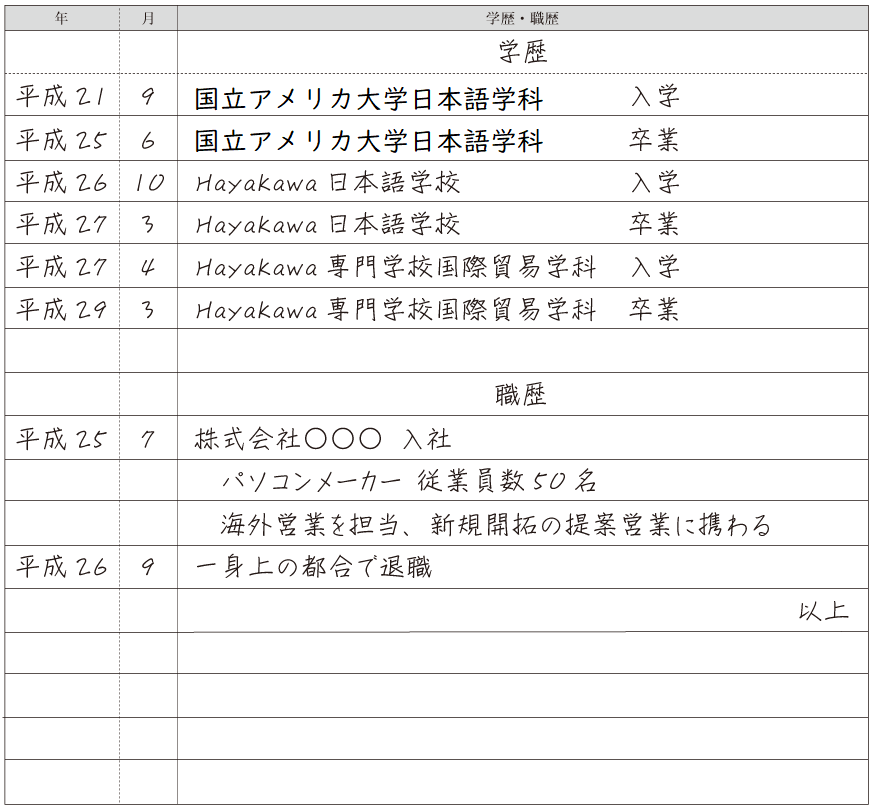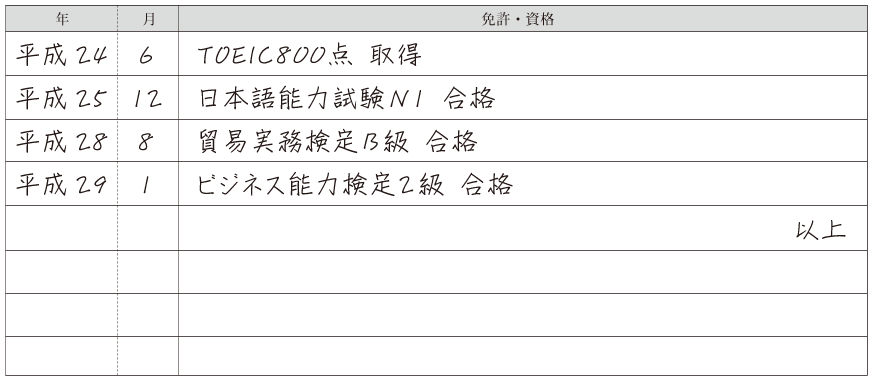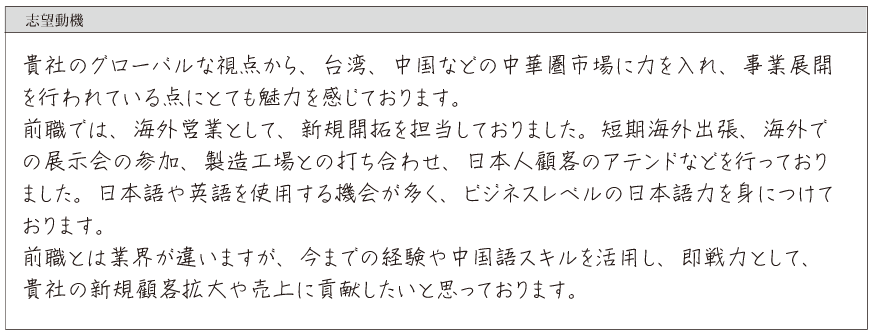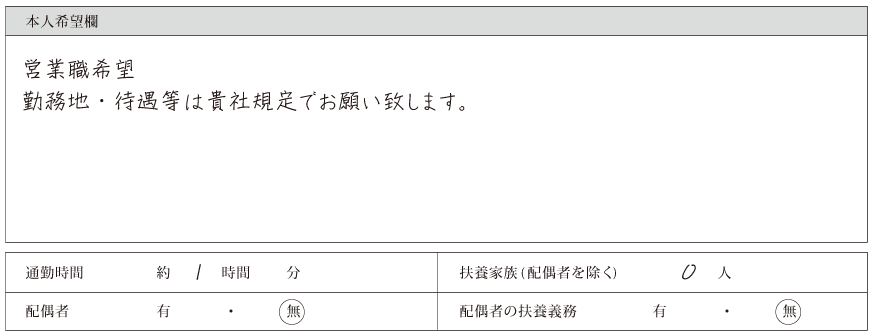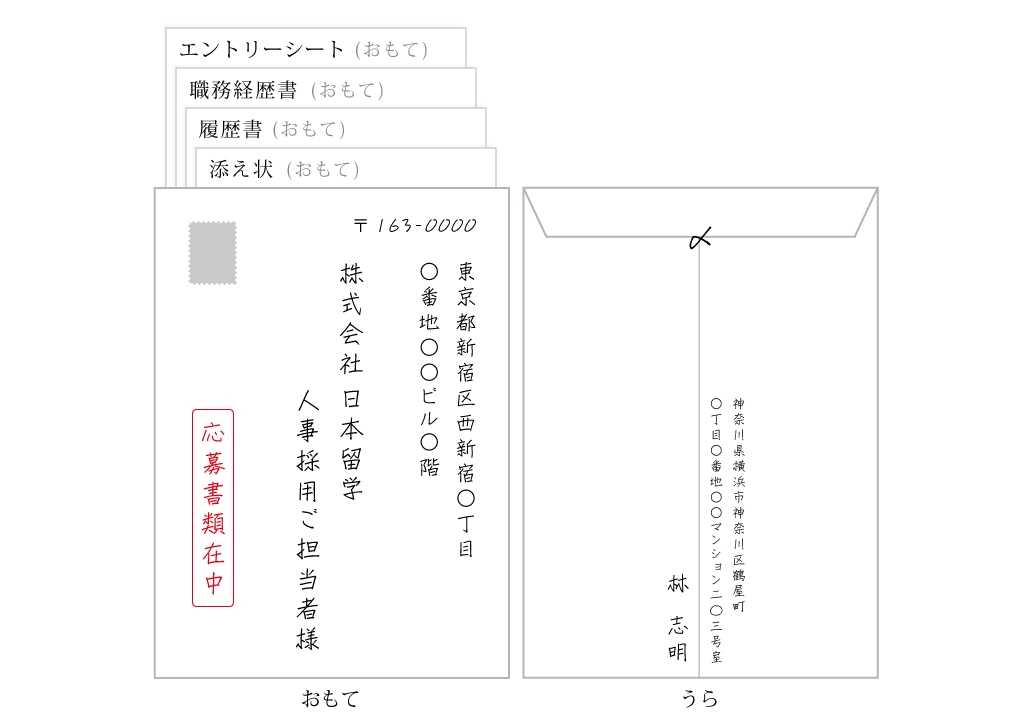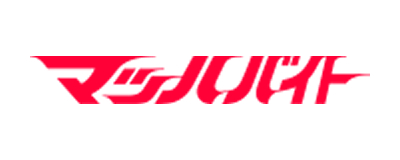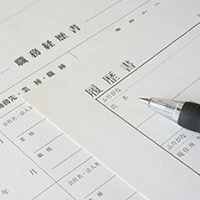How to Write a Resume: Check It Before You Apply
- Students
- Working Holiday
The last renewal day|
- Facebook()
- X
- LINESend this page by LINE
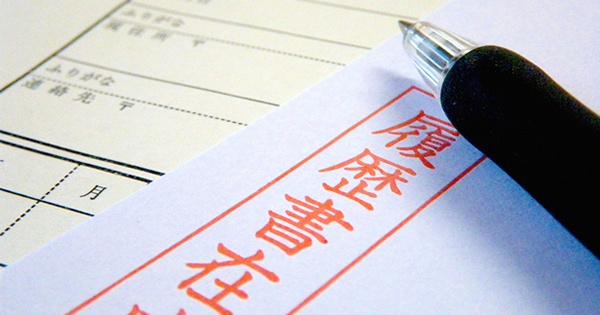
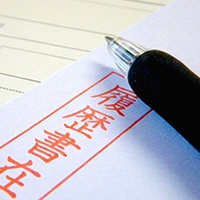
A resume is one of the most important documents to inform your personality and ability to the company. It is the first difficult point to obtain a job in Japan because the employer shortlists the applicants based on what the resume says. Although it does not decide everything, it is very important because you must make the recruiting personnel desire to meet you by reading it. For that, correct Japanese expression and Japanese business manners are necessary.
Japanese resume has a different style compared to the English one. For example, a cover letter is unnecessary instead of including objective in resume. It is useful to know how to complete a Japanese resume if you would like to have a job.
This article explains the points of writing Japanese resume: education, work experience, objective, qualification, and special skills, as well as the manner of sending. There are three sections, part-time job, job-change, and job hunting for students; each has different important points shown in the article. If you are struggled with writing a Japanese resume, refer to the following contents and make a remarkable resume.
- How to Write a Resume in Japanese: Part-time Job
- How to Write a Resume in Japanese: Job-change
- How to Write a Resume in Japanese: Job Hunting for Students (Coming Soon)
Basic Rules for Writing Japanese Resume
- Write carefully with a black pen (not a pencil).
- Do not correct with whiteout or double lines. If you make a mistake, you should start again with a new blank resume. To prevent these mistakes, we recommend making a draft.
- Fill in all the blanks.
- Use the same suffix: honorific or not.
- Be careful with typographical errors.
- Avoid using a copy of the previous resume you have written.
*If you are not confident with Japanese handwriting resume, you can make with PC and bring the photocopy. Nowadays, many companies allow applicants to make it with Microsoft Office Word or Excel, though they require the handwriting one in the previous days.
How to Write a Resume in Japanese: Basic Information
- Date: Write the date of submission, not the day you write. If you go to an interview, the date must be on that day. If you mail, it should be the posting day. Integrate the style of the year as C.E. or Japanese era name.
- Name: Insert a space between first name and surname. Write kana pronunciation depends on the resume indicates. *「ふりがな」 is in hiragana, and 「フリガナ」 is in katakana.
- Age: It should be the age when you post/submit the resume.
- Address: Do not omit anything: prefecture, postal code, the building's name, room number, and kana pronunciation. Provide precise information.
- Telephone number: Write the number enables to contact. If you do not have a landline telephone, write only your mobile number.
- E-mail address: Use the PC e-mail address, not the mobile one.
- Photo: It should show your front face without any hat/cap, taken within three months. Write down your name on the backside. You should wear a black or navy suit.
How to Write a Resume in Japanese: Education and Work Experience
Education
- Write 「学歴」 in the middle of the first line.
- Integrate C.E. or Japanese era name according to the style you have written on the date above.
- Generally, describe from one before academic history.
- Write the precise enrolled and graduate year.
- Do not shorten your school name. For example, use 「高等学校」, not 「高校」.
- In the case of a university, college, or graduate school, describe the faculty, department, and major/minor.
- 最終学歴 (Academic history): Although it literally means final education, it here means the highest education you have taken.
- If you leave school during a term, clarify it.
- If you are an undergraduate student, you should describe「卒業見込み」, which means expected to graduate.
Work Experience
- Insert a blank line from the education, write 「職歴」 on the middle of the line.
- List a set of entries and leaves in chronological order.
- Do not shorten the company name. For example, do not use 「(株)」 instead of 「株式会社」.
- Write the industry type and own department.
- Write a brief explanation of your work experience. If you experience a lot of part-time jobs, select a couple of stories from the latest one, the longest one you've worked, or related one. Describe further details with the related work experience.
- If you still have a job, write 「現在に至る」 at last. If you currently do not work, write 「以上」.
- For that reason, if you leave the company by personal circumstances, write 「一身上の都合で退職」. In the case of a firing, write 「会社都合により退職」.
How to Write a Resume in Japanese: License and Qualification
- Write the licenses and qualifications you have obtained. Do not shorten the name. For example, describe 「実用英語技能検定」, not 「英検」.
- Enter the precise year you have obtained.
- If you have several qualifications, write priority qualifications that can be useful for the applying company and occupation.
- If you have been studying to obtain a qualification, describe it.
- If you have neither license nor qualification, write 「特になし」.
How to Write a Resume in Japanese: Objective
- When writing an English resume, you usually do not include an objective in it because you write a cover letter, which does it. However, you must write an objective when writing a Japanese resume because there is no culture to write a cover letter.
- Since space is not broad, you have to organize your opinion. Therefore, check the following points.
- Do not write a general objective that you can use for every company. You had better write concrete applying reason. To do that, research the company, understand the unique strength, and relate yourself and the company.
- According to your previous experiences and skills, write details with what you would like to and can do after entering the company.
How to Write a Resume in Japanese: Hobby and Special Skills
- Describe priority hobbies and skills that directly relate to the job. For example, you can tell that you can serve foreign tourists in a foreign language, or communicate with foreigners.
- Fill this out even though you do not have any related hobbies and skills because you might discuss it. The employer might be interested in you due to it. Japanese resume is not too serious about this section, so do not hesitate to write.
- Be as specific as possible. For example, your hobby is reading (three books in a month).
- You do not have to describe hobbies that give negative images, such as gambling, sleeping, and participating in matchmaking parties. You also do not have to tell your activity that possibly affects work, such as band activity.
How to Write a Resume in Japanese: Personal Request, Commuting Time, and Spouse
Personal Request
- Write the job category you want if there are job opening type.
- About the wage and treatment, you should write 「貴社規定でお願い致します」.
Commuting Time
- It is supposed to be within 90 minutes in one way.
- If you live far away from the workplace, you should get rid of the employer's worries. For example, tell that you can move after hiring, or you can commute without any problems.
Spouse
- If your married, circle 「有」: If you are single, circle 「無」.
Manner of Mailing and Handing a Japanese Resume
Mailing
Manner of mailing
- Do not fold applications: after putting it in a brand-new plastic file folder, put them into a white A4 envelope.
- We recommend sending at the post office counter just in case of lacking fee.
- Mail as early as possible to meet the deadline.
- Align the envelope surface with the document surface.
How to write an envelope
- Write the precise address from the prefecture.
- Do not use the abbreviation, such as (株), which is an abbreviation of 株式会社, Write the official name.
- For the honorific title, use sama (様) if the address is the person in charge, and use onchu (御中) for the department or group.
- If the person in charge is unclear, write 「人事採用ご担当者様」.
- Write 「履歴書在中」 or 「応募書類在中」 with a red pen on the left bottom of the surface. It means that a resume/application is enclosed.
- Write your name and address on the backside.
- Put in order of an accompanying letter, a resume, a curriculum vitae (CV), and an "entry sheet (ES)".
- Make sure your resume picture is on top.
- Write 〆 in the closed area of the envelope.
Bringing / Handing
Manner of bringing/handing
- Hand it as putting in a plastic file folder or envelope.
- An accompanying letter is unnecessary.
How to write an envelope when handing
- In the case of the envelope, you do not have to seal it.
- Write 応募書類在中 on the left bottom of the surface.
- Write your name on the backside.
How to Write a Resume in Japanese: Part-time Job
Applicants usually have to make a Japanese resume by handwriting unless the Japanese level is low; you can make a resume by PC. However, when applying via a part-time recruiting website, there is a case to send a resume by e-mail. In that case, send a resume data created by PC; do not scan and send a handwriting resume. The rule of making a resume by PC is the same as the handwriting one.
Careful points for writing part-time job's objective
Those who have never worked in the real world should show strengths, which are related to the desired position. For example, show your experiences of service industry or communication skills when applying a restaurant or any food service worker. Be careful of saying "I can do it" or "I'll do anything you say" without having any background because your credibility might fall. When considering the objective, write with specific examples, such as experiences of part-time jobs, club activities, special skills, hobbies, and so on.
Example sentence
Show that you have the power to get the job done with examples *Optimize for each application
やりたいと決めたら、途中で諦めないのが私の長所です。日本での留学に関しても、4年前に目標として掲げ、その目標を達成するために、4年間日本語を勉強するとともに、留学費用を貯めるための努力を継続、目標を達成することができました。今回御社のアルバイトに応募させていただいたのも、自分のコツコツ取り組める長所を活かすことで、業務に貢献しつつ、様々な日本の方たちと交流できると考えたからです。御社に採用していただくことができれば、しっかりと業務を覚え、日々真面目に業務に取り組み、御社のビジネスに貢献できれば幸いです。
English translation:
My strength is not giving up things, which I have decided once, on the way. For studying abroad in Japan, I continued studying Japanese as saving educational expenses to achieve the goal, since I decided it four years ago. Using that strength, I would be happy to contribute to your business as interacting with various Japanese people. It would be a great honor to work for you. I will work properly in every day and being helpful.
Recommended websites and apps for part-time jobs
GigaBaito partners with major Japanese part-time job websites — including Mynavi Baito, Baitoru, and more — to bring together thousands of job listings from across Japan. With GigaBaito, you can search part-time job opportunities from multiple websites all at once and apply directly through the platform.
You can easily filter results by region, train line, or job type, and even check options such as “Foreigners Welcome (外国人歓迎)” or “International Students Welcome (留学生歓迎)” to find jobs that suit your situation. GigaBaito makes it simple to discover part-time jobs in Japan that are open to non-Japanese applicants.
In addition to part-time work, the site also lists dispatch and full-time job openings — making it a great choice for foreigners who want to find jobs in Japan quickly and efficiently. No membership registration is required; just download the free GigaBaito app to start searching for job opportunities anytime, anywhere.
One of the largest part-time job websites in Japan, this platform offers over 2,000 listings that welcome foreign applicants — including long-term and short-term part-time jobs, resort jobs, high-paying positions, and daily-paid jobs.
The site also features a dedicated section that gathers part-time job listings open to foreigners, making it easy to find work that fits your preferences.
By registering for a free membership, you can save your resume online and receive email notifications about the latest part-time job openings that match your search criteria.
How to Write a Resume in Japanese: Job-change
At a job interview, the interviewer always asks the reason why you would like to work at that company. Answering this question is a great opportunity to show off how good you are. You should specify why you applied, why you would like to get the position, your strength that relates to the job, and so on with own-experienced examples. Interviewers do not seek abstract reasons or expressions, which you can say at any job interview. To explain the objective clearly, you should speak as dividing into three parts: the reason you apply, your experiences and skills, and what you would like to do after employed. Do not forget to attach your own experiences.
Careful points as writing an objective for job-change
Write a specific reason by examining the company thoroughly
Do not just write 「社風に共感した」 (= sympathized the corporate culture) or 「経営理念に感銘した」 (= impressed by the management philosophy) because these are abstract expressions. Examine what the company is like, and understand the business overview. After that, write what attracts you: market share, products, or services, with your own words.
Understand required human resources, prove how you fit by sharing your experiences, skills, achievements
Writing only your position and business you were in charge of the previous work is not enough. Try to describe the achievements and ideas you have devised so that the employer would know about you with details. When changing to a non-experienced job, it is important to have a firm understanding of the industry and job. Show your efforts and willingness to contribute.
Also, it is necessary to clarify the reason you challenge to the non-experienced job. For obtaining that job, explain how you make efforts. Show how you use your experiences and knowledge.
Tell what you would like to/can do in the future along with the company
Many foreigners say that they would like to connect Japan and their home country by their language skills: Japanese, English, and the native language. However, not many can imagine what kind of job they would like to do to connect the two or more countries. To be a remarkable candidate, you should write specific thoughts that you can handle.
It is important to have a third-person view
Before submitting the objective, you should get feedback from a third party such as a job-change agent, Japanese friend, school teacher, etc. They even realize beliefs or prejudice that you hardly notice, in addition to typographical errors, and omissions. Besides, job-change agents are also able to support career inventory and finding jobs. Rather, in the process of utilizing these services, ask them to check your objectives.
Check! Useful job-change agent to make a resume in Japanese
Job-change agents are a general term for job-change support services. They broadly help with job-change, such as introductions job offers, interview adjustment, salary negotiation, etc. They provide many support services free of charge, for example, advice on how to write a Japanese resume, interview preparation, career consultation, etc. If you are having trouble with writing a Japanese resume, you should request them to review in the process of using the services. This service is especially helpful for those who change the job for the first time or challenging the non-experienced industry.
Recommended Recruitment Agency for job-change
This job-change agent achieved No.2 customer satisfaction in 2023. Adeco, a comprehensive human resources service company with more than 5,100 bases in 60 countries around the world, is in charge of operations. Becoming a free member, you can receive both public and private latest job information. They also provide free support services such as evaluation of Japanese resume and CV, supporting interviews, and so on. They handle not only globalized companies in Japan but also foreign companies, which other job-change agents do not introduce.
They keep the top level in the industry for the number of job posting, satisfaction, and achievements. A personal career adviser provides various support free of charge. The support service includes the evaluation of applications such as resume and CV, advising for interviews, resigning procedures, etc. They can introduce a wide range of occupations from IT to finance, advertising, and sales. In addition to major companies, there are recruitments of small, medium-sized, and start-up companies.


